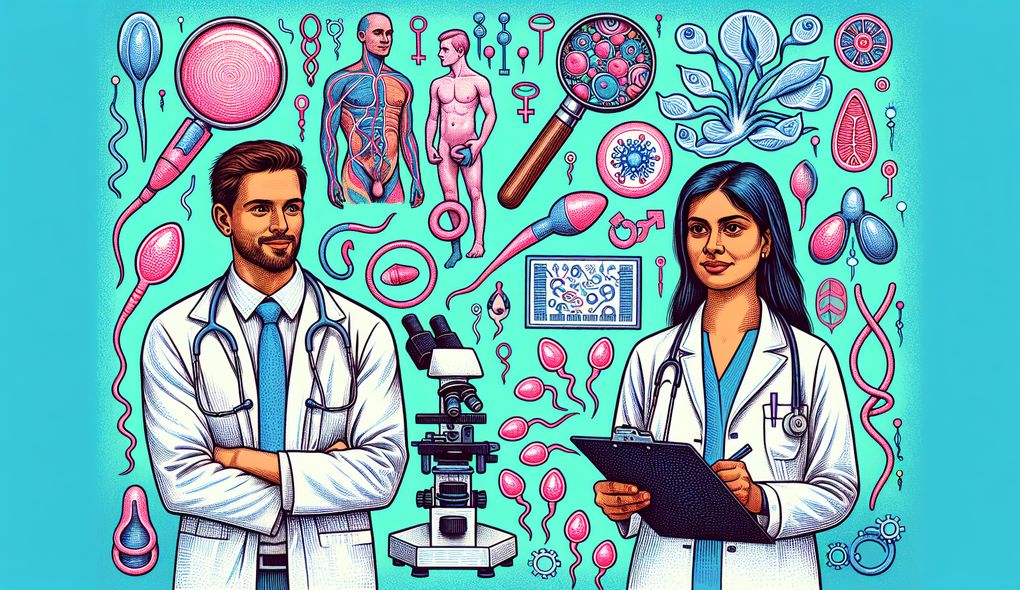What measures do you take to ensure accurate and reliable test results in your diagnostic procedures?
JUNIOR LEVEL

Sample answer to the question:
To ensure accurate and reliable test results in my diagnostic procedures, I follow a stringent process. First, I make sure to properly calibrate and maintain the equipment I use for testing. This includes regular cleaning and quality control checks. Second, I double-check all patient information and test orders to ensure accuracy. I also verify patient identification to prevent any mix-ups. Third, I follow standardized procedures for collecting samples, ensuring proper storage and transportation. Fourth, I adhere to strict laboratory protocols for processing and analyzing the samples. This includes maintaining the appropriate temperature and timing for each test. Finally, I carefully document all steps performed and any observations made during the testing process to ensure traceability and transparency.
Here is a more solid answer:
To ensure accurate and reliable test results in my diagnostic procedures, I have developed a comprehensive approach. Firstly, I meticulously calibrate and validate the testing equipment I use. This entails regular performance checks and maintenance. For instance, I recently identified an issue with the temperature control of a semen analysis machine and promptly arranged for a technician to fix the problem. Secondly, I have implemented a rigorous system for verifying patient information and test orders. This involves cross-referencing medical records, checking patient identification, and obtaining consent where necessary. As an example, during a recent hormone assay test, I noticed an inconsistency in the patient's medical history, which led me to identify an error in the test order. I promptly rectified the mistake, ensuring accurate and reliable results. Thirdly, I adhere to strict protocols for sample collection, handling, and transportation. I have undergone specialized training on proper techniques to minimize contamination and ensure sample integrity. Recently, I implemented a new sample tracking system that allows for real-time monitoring of the samples' storage conditions and transportation progress. Lastly, I maintain detailed and organized documentation of each step in the testing process. This includes recording equipment used, testing protocols followed, and any abnormal observations made. By doing so, I can easily troubleshoot any inconsistencies and ensure the accuracy and reliability of test results.
Why is this a more solid answer?
The solid answer provides more specific details and examples of measures taken to ensure accurate and reliable test results. It demonstrates a proactive attitude and the ability to identify and address potential issues.
An example of a exceptional answer:
My approach to ensuring accurate and reliable test results in diagnostic procedures involves a combination of meticulous processes, continuous improvement, and collaboration. Firstly, I have implemented a comprehensive quality management system that includes regular audits, internal proficiency testing, and external quality assurance programs. This ensures that our laboratory adheres to strict accreditation standards and maintains the highest levels of accuracy and reliability. For example, during a recent audit, I identified an opportunity to improve our reporting process and proposed the implementation of a digital reporting system, which streamlined our workflow and reduced the chances of data entry errors. Secondly, I actively participate in professional development activities to stay updated with advancements in the field. This includes attending conferences, webinars, and workshops. As a result, I recently adopted a new technique for genetic testing that has significantly improved our diagnostic capabilities. Thirdly, I foster a culture of collaboration within the team by regularly engaging in case discussions and seeking input from my colleagues. For instance, during a challenging case involving male infertility, I collaborated with a senior andrologist and a genetics specialist to develop a customized diagnostic approach that led to successful treatment. By combining these measures, I consistently ensure accurate and reliable test results.
Why is this an exceptional answer?
The exceptional answer goes above and beyond by demonstrating a comprehensive approach that includes quality management systems, continuous professional development, and collaboration. It showcases the candidate's initiative, adaptability, and dedication to accuracy and reliability in test results.
How to prepare for this question:
- Familiarize yourself with the different diagnostic tests commonly used in andrology, such as semen analysis, hormone assays, and genetic tests. Understand the principles behind each test and how to interpret the results.
- Research the latest advancements and techniques in andrology to stay up to date with industry trends. This includes attending conferences, reading research papers, and participating in online forums.
- Develop strong attention to detail by practicing meticulous documentation and record-keeping. Highlight examples of how you have identified and rectified errors or inconsistencies in the past.
- Demonstrate your ability to work collaboratively by sharing experiences of successful teamwork and interdisciplinary collaboration. Highlight the benefits of collaboration in ensuring accurate and reliable test results.
- Prepare examples of how you have implemented quality control measures in your previous work. This could include initiatives related to equipment calibration, proficiency testing, or process improvement.
- Be ready to discuss your experience in handling complex cases and how you approach diagnostic procedures to ensure accuracy and reliability. Provide specific examples that highlight your problem-solving abilities and attention to detail.
What are interviewers evaluating with this question?
- Attention to Detail
- Clinical Skills

